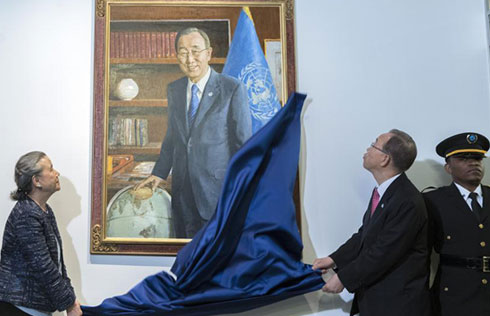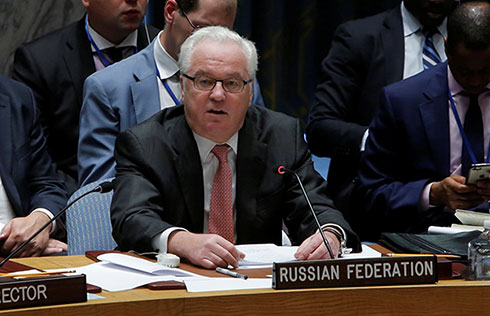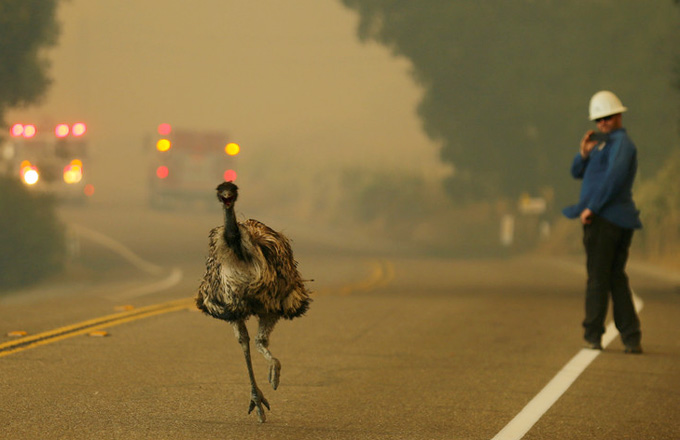Japanese firms 'to make F-35 fighter parts'
Tokyo on Friday confirmed that it will allow domestic companies to manufacture and export parts for F-35 stealth fighter jets, a controversial move viewed by Asian neighbors as part of its military expansion.
Given Japan's militarist history in World War II, the arms deal has prompted further concern about Tokyo's hawkish defense policies, observers warned. Exports consisting of fighter-jet components contradict Japanese pledges to seek peace, they said.
The decision was made at a government security meeting on Friday morning. Japanese Chief Cabinet Secretary Yoshihide Suga said in a statement that domestic manufacturers' participation will help "maintain, nurture and upgrade the basis of our country's production of defense equipment and its related technology".
Opposition parties criticized the move, saying it violates Japan's ban on arms exports. They said that countries involved in conflicts — such as Israel — that plan to acquire the fighters may get F-35s with Japanese-made parts, Japan's Kyodo News Agency said.
The export deal may "run against Japan's policy of avoiding aggravation in international conflicts", Xinhua News Agency commented.
Ji Zhiye, vice-president of the China Institutes of Contemporary International Relations, said that Japan in recent years has been trying to "seek a breakthrough" in lifting bans on the country's postwar pacifist constitution as well as its pledged principles of weapons-exports embargoes.
The Japanese government in 1967 first introduced the "three principles on arms exports", which promised to embargo exports of weapons to countries involved in international conflicts. Tokyo comprehensively banned weapon exports in 1976.
Japan's embargo principles were further eased in 2011 under the then-ruling Democratic Party of Japan administration to enable Japan to participate in joint weapons development and production with other nations.
"In the meantime, Japan has planned to provide patrol boats to the Philippines," Ji warned.
Manila in mid-February confirmed that Tokyo approved the Philippines' request for the new patrol boats through its official development assistance. The Philippines will acquire the 10 new patrol boats from February to August 2014, Manila's local media said.
Tokyo has long been criticized for its legislative attempts to remove restrictions on its defense development.
Given the status quo, it is "unlikely" to block the strategic plans by the hawkish Japanese Prime Minister Shinzo Abe to make Japan a "military power", said Wang Ping, a researcher on Japanese studies at Chinese Academy of Social Sciences.
Abe's goal to justify the country's Self-Defense Forces' "collective self-defense" also seems "unstoppable", Wang added.
Suga, Tokyo's top spokesman, added that the decision will help reduce F-35 costs as the country planned to purchase a total of 42 such fighter jets to replace its dated F-4 fighters.
Tokyo's nod to the jet-parts deal came along with the Pentagon's remarks on Thursday that the United States will resume flights of its F-35 fighter jets after a weeklong precautionary grounding imposed after a crack was found on an engine blade on a test plane in California.
"F-35 flight operations have been cleared to resume," Pentagon spokeswoman Kyra Hawn said in a statement. She said flights could begin as early as Friday, depending on weather conditions.
Japan signed a contract with the United States to buy four F-35 jets last June, and the most advanced fighters will be handed over to Japan in 2016.
Xinhua and Reuters contributed to this story.
Contact the writer at zhangyunbi@chinadaily.com.cn



















